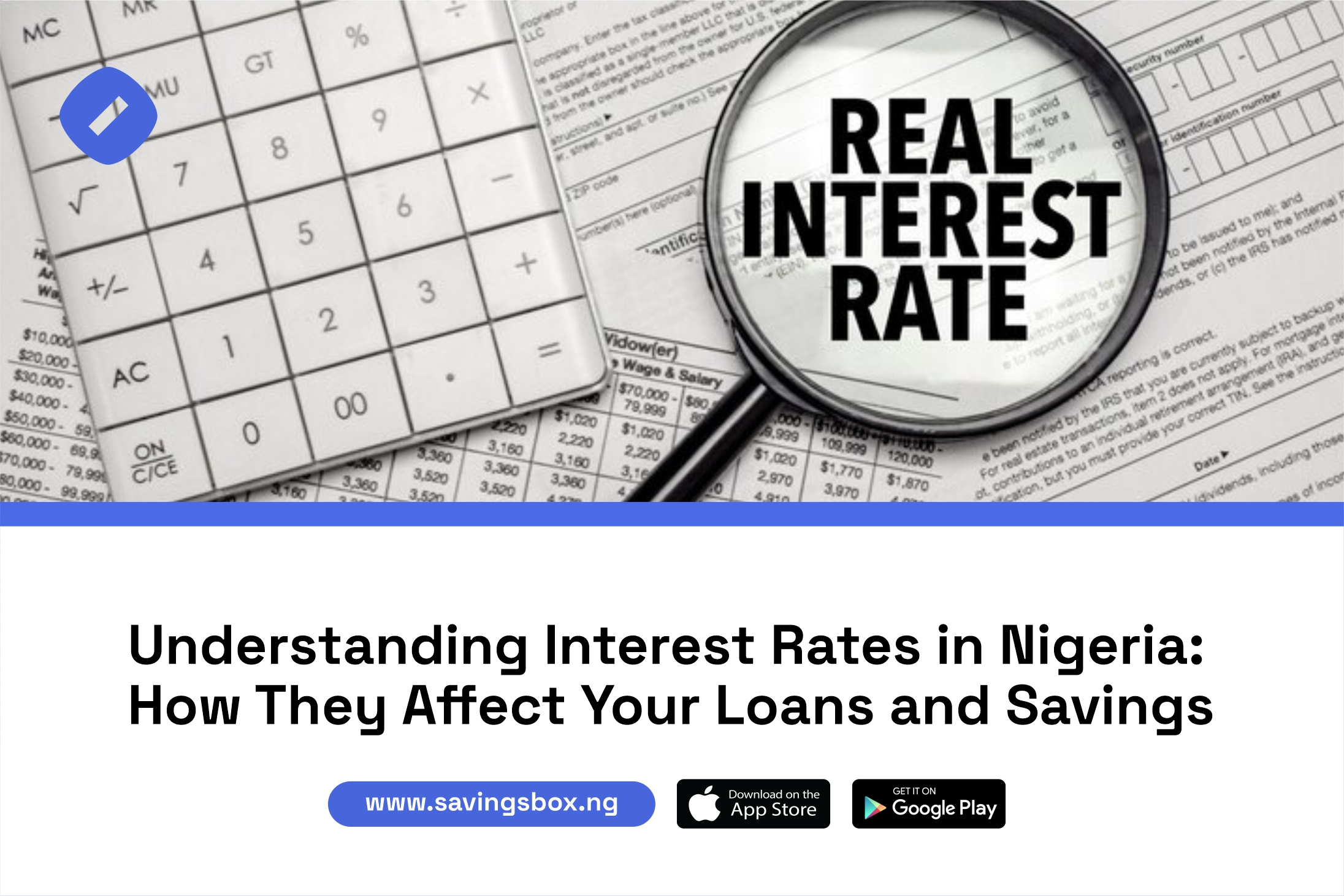Share This Article
Interest rates are one of the most important concepts in personal finance. Whether you are taking a loan to fund your business or saving towards your future, interest rates play a key role in determining how much you earn or owe. In this blog, we break down what interest rates mean, how they are calculated, and how they affect your financial decisions in Nigeria.
What Is an Interest Rate?
An interest rate is the cost of borrowing money or the reward for saving it. When you take a loan, the interest rate determines how much extra you’ll pay the lender. When you save, it determines how much you’ll earn over time.
In Nigeria, interest rates are influenced by various factors such as the Central Bank of Nigeria’s (CBN) monetary policy, inflation, and market demand for credit.
How Interest Rates Affect Loans
When you borrow money, whether it’s a personal loan, car loan, or mortgage—you repay the loan amount plus interest. The Annual Percentage Rate (APR) is what shows the true cost of a loan over a year, including interest and other charges.
Example:
If you borrow ₦500,000 at an APR of 20%, you’ll repay ₦600,000 over one year (₦500,000 principal + ₦100,000 interest).
Why This Matters:
-
High APR = Expensive loans: The higher the APR, the more you’ll pay.
-
Low APR = Affordable loans: Always compare APRs before choosing a lender.
Pro Tip: Look beyond just the monthly repayment. Understand the total repayment and whether early repayment is allowed without penalty.
How Interest Rates Affect Savings
When you save money, the bank or financial institution pays you interest. The higher the rate, the more your money grows. This is especially important in a country like Nigeria where inflation can erode the value of your savings.
High Yield Savings in Nigeria
High yield savings accounts offer above-average interest rates compared to regular savings. Some fintech apps and microfinance banks now offer interest rates as high as 10% – 25% per annum. (eg. Savingsbox)
Example:
Saving ₦100,000 in a high yield savings account at 12% interest per annum will earn you ₦12,000 in a year.
Fixed vs. Variable Interest Rates
In Nigeria, loan and savings products can have fixed or variable interest rates:
-
Fixed Interest Rate: The rate stays the same throughout the loan or savings period. Predictable and easier to budget.
-
Variable Interest Rate: The rate can change based on market conditions. Risky but can be beneficial if rates drop.
Interest Rate Trends in Nigeria
The Central Bank of Nigeria (CBN) often adjusts the Monetary Policy Rate (MPR), which influences commercial bank interest rates. In recent times, the MPR has increased due to inflation, affecting both loan costs and savings yields.
What This Means for You:
-
Loans have become more expensive.
-
High yield savings options are becoming more attractive.
How to Maximize Interest in Nigeria
-
Compare APRs: Before taking any loan, compare the APR from different providers.
-
Use Loan Calculators: Estimate your total repayment before committing.
-
Opt for High Yield Accounts: Choose savings platforms offering better interest rates.
-
Avoid Loan Sharks: If the interest sounds too high or unclear, it probably is.
FAQs on Interest Rates in Nigeria
Q1: What is the current loan APR in Nigeria?
A: It varies, but many lenders offer loans with APRs ranging from 20% to 40% per annum, depending on the risk.
Q2: Are high yield savings safe in Nigeria?
A: Yes, as long as the platform is licensed by the CBN or insured by the NDIC. Always do your due diligence.
Q3: Can I negotiate loan interest rates?
A: Some lenders may offer reduced rates based on your creditworthiness or collateral. Always ask!
Conclusion
Understanding interest rates is crucial for making smarter financial choices in Nigeria. Whether you’re borrowing or saving, knowing how interest works helps you avoid debt traps and grow your money effectively.
Make it a habit to compare loan APRs, choose high yield savings options, and stay updated on interest rate trends. Smart financial planning starts with knowledge—and now, you have the edge.
Ready to make smarter money decisions?
Follow us for more tips on saving, borrowing, and building your financial future in Nigeria.


